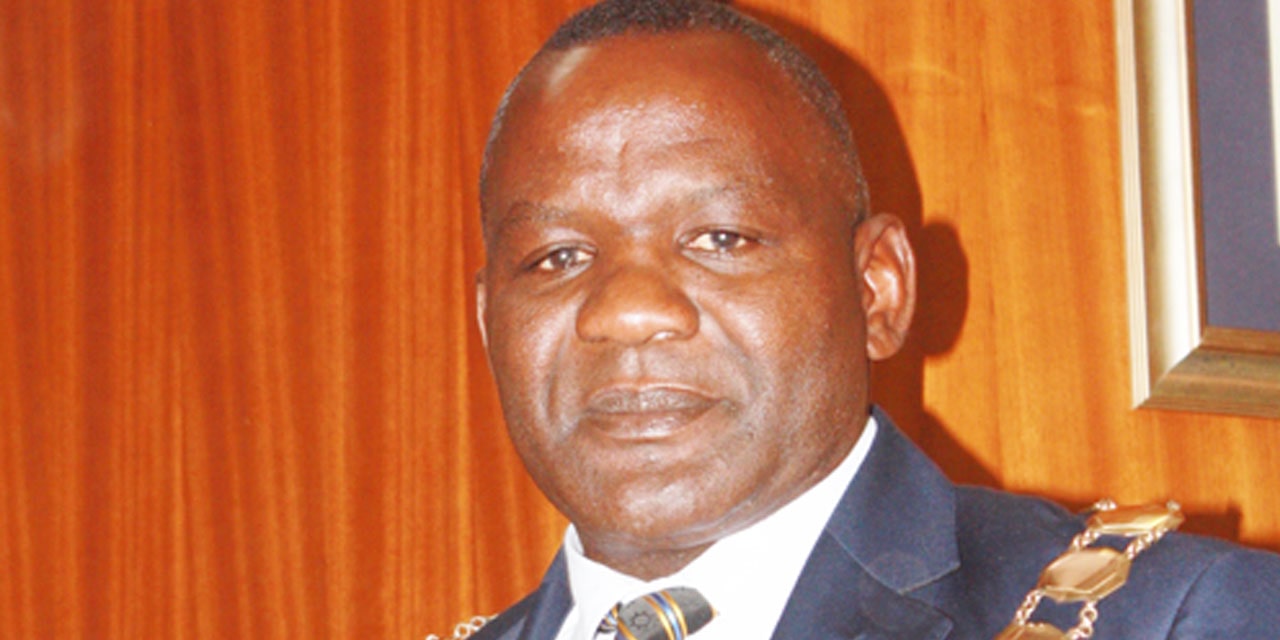Andrew Kathindi
The rogue fire that ravaged the Walvis Bay township of Twaloloka on Sunday 26 July has forced government to allocate and service temporary land to the tune of N$20 million.
Walvis Bay Mayor, Immanuel Wilfred, confirmed the development, which will see the local authority suspending some capital projects. These are projects the council is yet to decide on in order to fund the servicing of land on Farm 37, a new location that was launched in the coastal town last year.
Farm 37 was identified in 2016 by the Walvis Bay and Erongo regional councils as a solution to the growing housing crisis in Walvis Bay. It has the potential to house over 30 000 of the over 16 000 backyard squatters in the town. Another section of the land was cordoned for temporary relocation. However, lack of funds has delayed this until the recent fire.
“The challenge that we as a local authority are facing is that we don’t have the money to service these ervens for temporary relocation. We only made provisions for in the long run in our budget, meaning its medium to long term. But the Minister of Urban and Rural Development told me to suspend some of our capital projects, and make use of the money, and the ministry will reimburse us in another financial year, so that’s what we are going to do,” the Walvis Bay Mayor told Windhoek Observer.
He said the procurement committee has started identifying the successful companies for the temporary tender of servicing the land, which is expected to be awarded on Wednesday or Thursday, with servicing of the land expected to take 14 days.
“We have got more than 16 000 squatters, and we’re talking about decongestion. We only are targeting Twaloloka because that’s where most of the people are living.”
Currently, the long-term housing project on Farm 37, which is expected to costs N$250 million, will take two years to complete.
This comes as Windhoek Observer previously reported that the Walvis Bay municipality had two initiatives to decongest the area of Twaloloka, amidst the COVID-19 outbreak.
The piece of land next to Twaloloka belongs to the National Housing Enterprise (NHE), and has been handed over to the municipality to relocate some residents of Twaloloka to spread the residents out more. The land holds 170 plots and Wilfred hinted that the municipality could permanently buy it back from the NHE in the future.
The process, which was supposed to have taken 14 days, however was delayed due to inadequate machines.
“You cannot take people to a site with no servicing. You have to clear the dunes, do dewatering, because some of the plots have a lot of water. It was supposed to take 14 days but those dunes are very heavy for the bulldozer.”
Over 1000 people were left homeless when the fire reduced over 240 shacks to ashes and left one child dead.
The disaster at Walvis Bay drew nationwide attention as some said it highlighted government’s failure to address the housing issue.
“The people have been asking for some of these things since 2016. They’ve been told three months, and then it becomes eight months, and so on and so on, and now here we are. It’s no longer the time to play games at all. It’s time to hold hands and find solutions for the people, but the people cannot go back into that situation,” said Walvis Bay Constituency Councilor, Knowledge Iipinge.
This comes as President Hage Geingob recently drew criticism according to media reports, stating that some people think once they have land, they will be rich. “But this is not so”.
According to the Shack Dwellers Association of Namibia (SDFN), nearly 1 000 000 Namibians live in shacks across the country, amounting to about 40 percent of Namibians living in about 228 000 shacks in countrywide.




